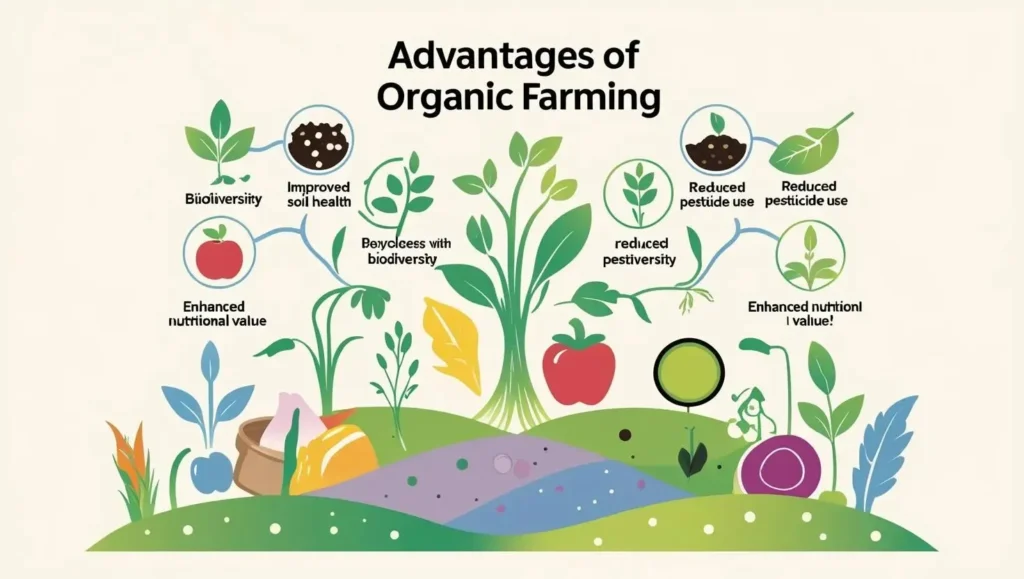What is Cooperative Farming?
Cooperative farming is the essence of the agricultural system, which includes the formation of alliance building involving people with shared responsibilities and liabilities, possessing the thinking ability for the upliftment of the underprivileged of this society.
It includes the farmers gathering resources in equitable efforts to conduct farming practices in groups or small farmers coming together to form cooperatives, which involves sharing land, resources, and machinery, working in small groups, and jointly marketing their crops.
Its basic aim is to motivate small land-holding farmers, improve farming methodology, improve efficiency, and reduce cost-benefit ratios. It is voluntary and individual participation in joint cultivation.
The main activities of the plantation, harvesting, are carried out jointly to gain profit from it. The profit and loss of farming are distributed among the cooperative members through the shared farming methodology. Other farming methods are contradictory and reverse to cooperative farming, innovative farming has gathered interest in the realm of the agricultural sector.
This farming methodology is an answer to the challenges and shortcomings of Agricultural productivity, such as insufficient resources, diverse climatic conditions and the ever-growing populations, need to increase crop production. In cooperative farming the tech – know how is shared along with resources, equipment, value system, labour to achieve their desired goals and outputs.
Collaboration-based System:
The cooperative approach is needed in recent times to overcome the challenges being faced by the agricultural sector. This system is supported by mutual trust. The agricultural cooperative is also known to be a farmers’ cooperative where the farmers apply their resources in certain areas.
It is followed by a big investment that big and affluent farmers conduct, buying heavy inputs, opening into new markets. By being together, producers can reduce the costs and get into accurate services and facilities and generate an adequate amount of income.
In the field of agriculture, there are lots of obstacles like the uneven distribution of land, overpopulation growth, hunger, ignorance towards peasantry, etc, in the way of implementing a sound agricultural production.
The cooperative approach primarily focuses on the idea of natural decision-making activity, mutual collaborative support, collective proprietorship of assets, such as land, machinery, equipment, labour, and the entire infrastructure.
Role Of the Agricultural Department and Farmers’ Welfare In Cooperative Farming
Department of agriculture and farmers welfare(DAC & FW) initiates an efficient and sustainable development of farmers in India, by providing them various means of production under the various schemes and policies to create lucrative opportunities it is one of the important part of ministry of agriculture and farmers around approximately 50% of the Indian population resides upon agriculture and it contributes in the GDP of our nation.
This scheme has been set up to build a robust agricultural sector and maintain the sustainability and agricultural land. The govt. of development has different schemes to support the mission of agriculture-based welfare.
Revolutionizing Rural Development by Cooperative Farming
The cooperative farming initiative is revitalizing the rural economy by providing all sorts of facilities and uplifting them economically, socially, and in the environmental sense. Enhancing agricultural productive health and accelerating the market reachability by making it more profound and stable.
The main aim is to reduce the cost efficiency by sharing the assets like seeds, fertilizers(organic), tractors, and intervening in negotiating prices and enhancing the efficacy of the produce.
Through the cooperative farming initiative, the farmers are gaining each other’s support, improving loan accessibility for improving the farming activities and speeding up the production.
The rural development is happening or being formulated through the process of the cooperative family.
The family is precisely based upon the ideology and ethics of sustainability and harnessing natural resources. The farming relies upon new crop varieties and advanced modern equipment.
Is Cooperative a Better Farming Method?
The group of farmers does not cultivate jointly; rather, they individually cultivate their land, and they cooperate before sowing and after harvest. They purchase different assets and resources in the form of inputs like seeds, fertilizers, and huge machinery on a group basis.
They get financial assistance in a cooperative sense as they sell the crops in coalition groups and small teams, and carry out their activities smoothly.
There are a few challenges in cooperative farming that require a strategic planning method and technological knowledge, and need to manage good services and governance to maintain a competitive position.
The cooperative farming in India is based upon vast regional distribution, and the spread of the cooperative movement has been uneven across the states. The top 5 states with vast areas of cooperatives are Madhya Pradesh, Telangana, Gujarat, and Karnataka.
CONCLUSION
A cooperative approach is a joint agreement or venture to bring fruitful and long-term perspective changes in the agricultural sector, having a common interest. It’s a widely emerging prospect for the agro-based industries in which this method is acting as an advanced restructuring technique to bring long-term changes.
The agricultural sector has seen a new dynamism with the flourishing of cooperative work, with the ideology of revitalizing the cooperatives, infusing novel ideas in this field. The prime objective lies in strengthening and boosting the cooperative approach.
Under the shade of cooperative farming, several branches co-exist: agro processing, banking, credit, and marketing.
Under the cooperative movement, there has been a tremendous rise in the GDP of rural India, and having the potential to curb poverty in rural India and address the issues of food security is needed for the establishment of a sound economy.



